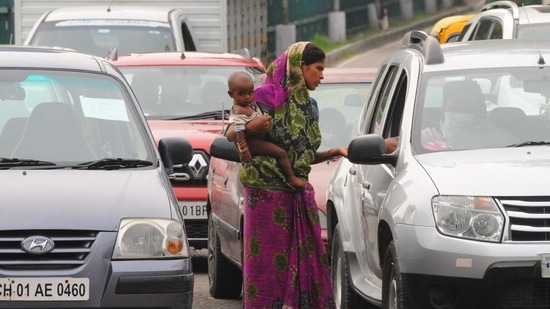
The National Human Rights Commission (NHRC) of India on Friday issued an advisory for the protection and rehabilitation of individuals engaged in begging.

The human rights body has included several key recommendations to address the socio-economic challenges faced by impoverished, uneducated children, women, and differently-abled people.
• Develop a standardised survey format to create a national database of persons engaged in begging.
• Regularly collect and update detailed information on an online portal accessible to authorities, nodal agencies, and shelter homes.
• Include parameters such as gender, age, family status, health issues, place of origin, and previous economic activities.
• Register individuals in shelter homes and issue identity cards.
• Ensure shelter homes provide essential services, including healthcare, registration assistance, and financial services.
• Organise camps to disseminate information on government welfare schemes and employment opportunities.
• Provide proper boarding, lodging, and healthcare services in shelter homes.
• Ensure access to mental health counseling, de-addiction, and rehabilitation services.
• Link residents with government medical assistance and insurance schemes.
• Ensure free and compulsory education for children aged 6-14 years involved in begging.
• Provide early childhood care and education for children up to 6 years old whose parents are involved in begging.
• Establish an anti-begging framework and work towards decriminalising begging.
• Undertake anti-poverty measures and enact laws to curb forced begging and human trafficking.
• Collaborate with NGOs, civil society organisations, and the private sector for skill development and vocational training.
• Encourage the formation of Self-Help Groups (SHGs) and provide financial assistance through bank loans and government schemes.
• Develop materials to raise awareness and provide follow-up and aftercare services to monitor progress and prevent relapse into begging.
• Reach out to the public to create awareness and seek cooperation in implementing protection mechanisms.
These recommendations aim to address the root causes of begging, provide support and rehabilitation, and ensure the dignity and rights of the affected individuals are upheld, the human rights body said.